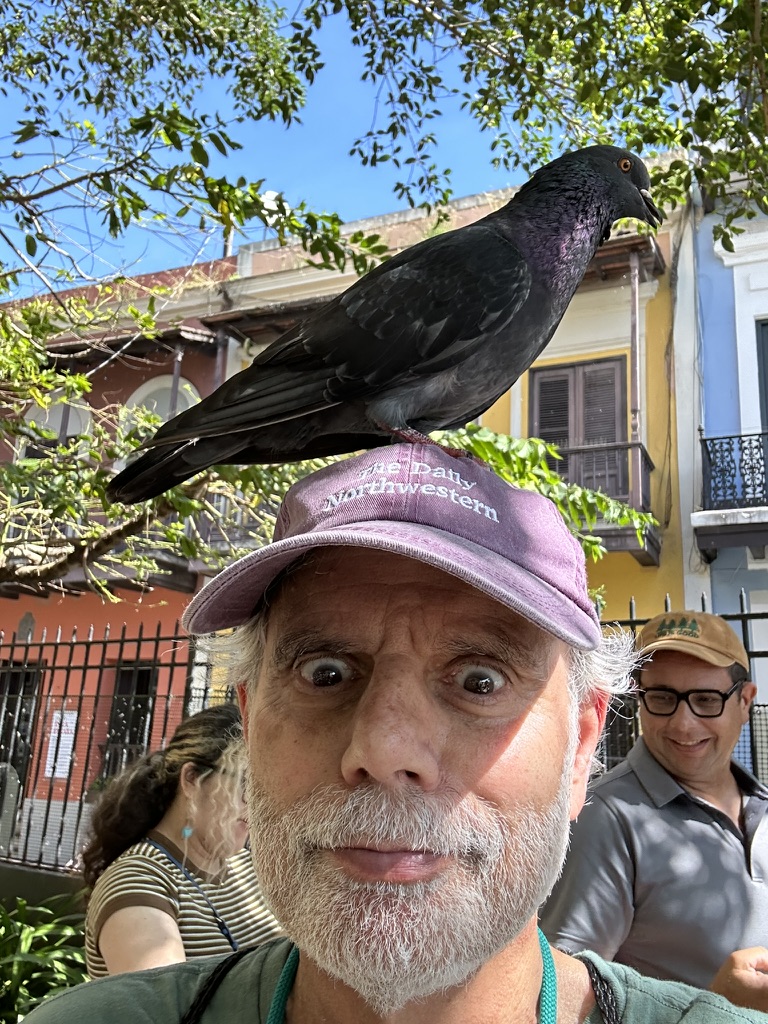Evanston RoundTable, April 4, 2019
Reflecting on it later, he decided it was wonderful happenstance, “pocketing the key of knowledge” in that way. It had happened, as many wonderful things do, on a visit to the Evanston Public Library, where he had gone to find a Tolstoy CD to play in his car.
He loved the building, that beautiful red-brick structure, the annual redoubt of a family of peregrine falcons, frequented also by a constant stream of children and parents, students researching papers, groups attending meetings, individuals looking for books and people just happy to settle in to read.
He skipped up the right-angled staircase, admiring the long and lovely mobile that hung from the ceiling—the “three-dimensional Pointillist structure,” as described by its creators. Rounding the landing he stopped to enjoy the artwork and photos by District 65 school children.
Then a sprightly left turn to the “T” section of the CD fiction shelves. But the Tolstoy was out. He let his eyes play over the Ts and saw an interesting-sounding novel by the Irish author Colm Tóibín. He had never read anything by Mr. Tóibín, nor anything by the great author Henry James, a double plus, because this book, “The Master,” was a novel about James.
He hesitated: James had a fearsome reputation as a dense and arid writer about characters—mostly upper crust Europeans and Americans—whose lives and conversations were dry as fall leaves. On the other hand, it could also be a profound discovery, as sometimes happens: a door that opens to a new and wondrous landscape. Why not?
Turned out “The Master” was something of a Jamesian masterpiece, written in the thoughtful, deeply intense James style of brilliant revelations yielding great meaning that arise from seemingly prosaic actions.
As a biographical novel “The Master” also provided some of the pleasure of non-fiction: he learned about the James family’s history—grandfather William, who came to America from Scotland almost penniless and made a fortune in business; and Henry James Sr., friend of Thackeray and Thoreau, who expounded a kind of Swedenborgian philosophy of “spiritualized psychology” that influenced both his famous sons.
And then there were those fabulous James’ boys. William trained as an artist and eventually became “the father of American psychology”; Henry moved to London and became America’s great expatriate novelist. Henry wrote novels like a psychologist, people said, and William wrote psychology texts like a novelist. They were, according to one biographer, “among America’s most original productions of the 19th century.”
For want of a Tolstoy his journey had taken him from one great book, “The Master,” to a succession of James’ classics. To paraphrase James in “The Wings of the Dove,” he had entered the library and “carried off in [his] pocket the key of knowledge itself.”
“Ah, happy library serendipity,” he thought, not for the first time. A door had swung open and he had walked right through.





Les: This will ring true to a lot of your readers. It did to me.
Nice.